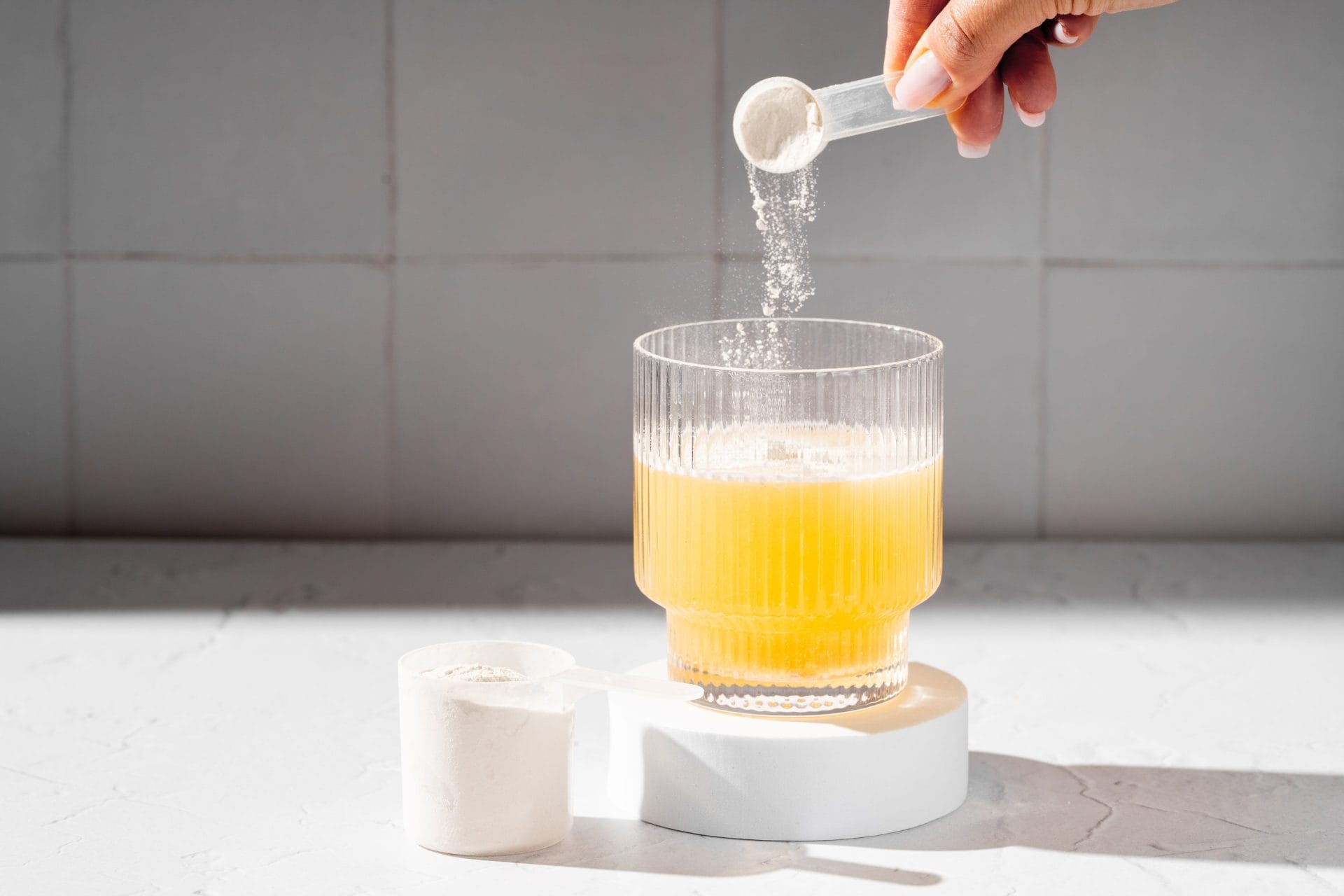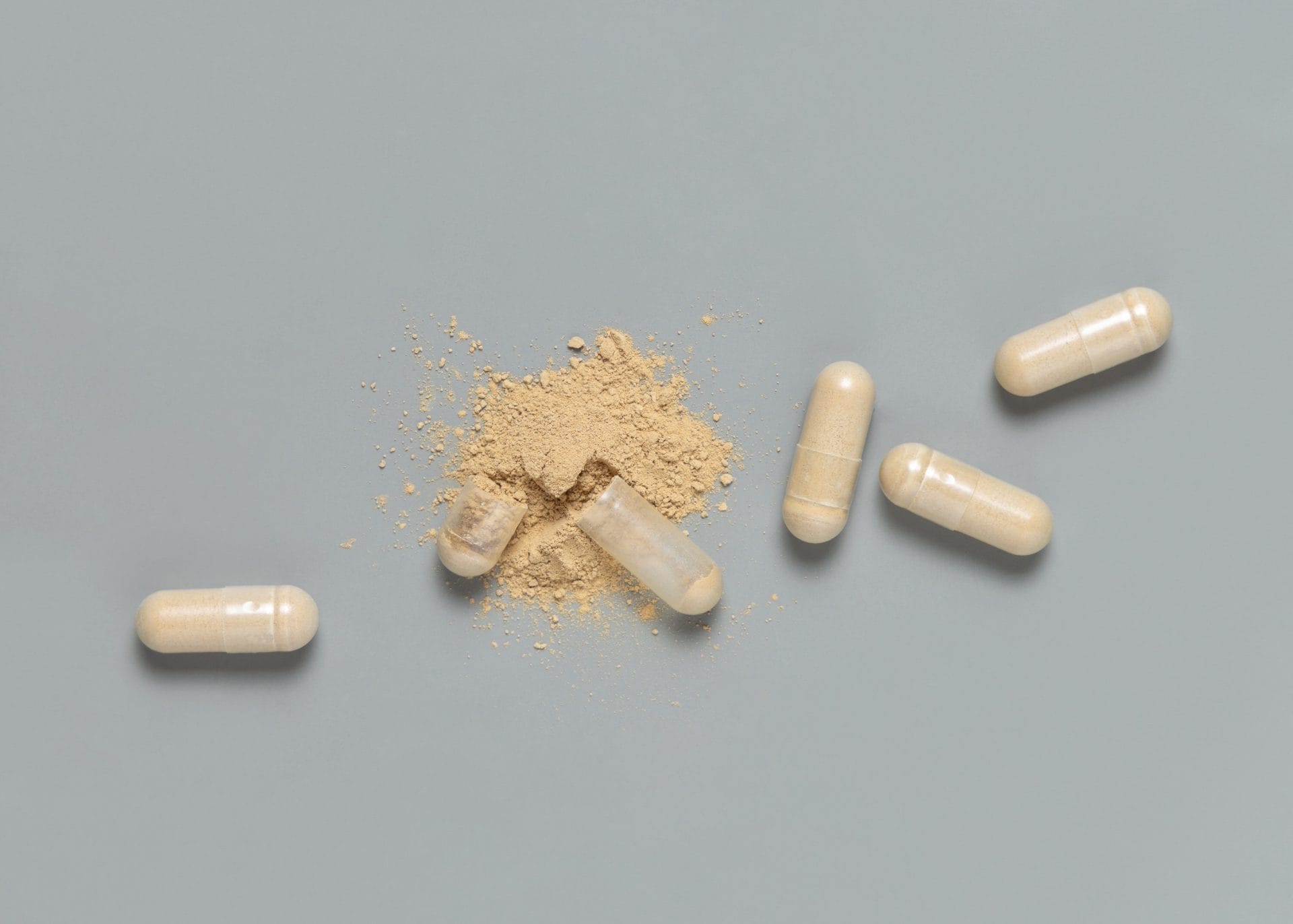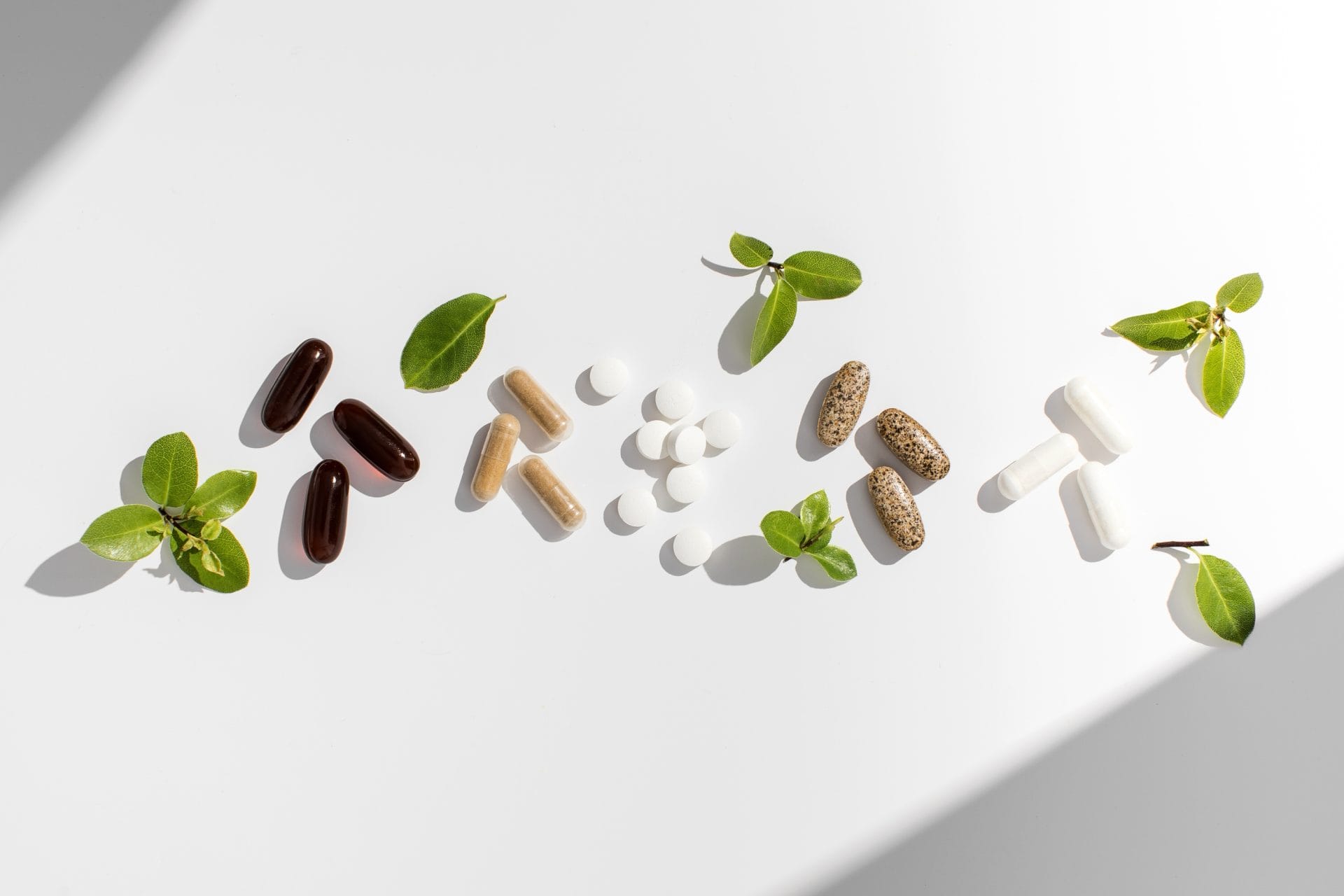What this article will tell you:
- The supplement industry is experiencing exponential growth and is expected to double in size by the end of this decade, with supplement contract manufacturing services growing in tandem.
- Why your supplement should differentiate from similar supplements and why your manufacturing partner must develop a formulation that includes different ingredients and achieves extraordinary results.
- Always work with a manufacturing partner that follows strict quality controls and understands the importance of these standards.
- The importance of sourcing quality raw materials and how to combine them for winning formulations.
- Testing is required throughout the production process and not just at the end.
- The role of packaging and why it matters: what your customer sees first, while protecting the content, maintaining its consistency, and ensuring its efficacy.
- Why you need a manufacturing partner from beginning to end, from small introductory batches to large-scale production.

Your Blueprint for Success in the Booming Health Industry
The global supplement market is currently valued at $150 billion and is expected to reach $300 billion by 2028. The supplement market is booming, and businesses worldwide are seeing opportunities in the dietary supplement industry.
But success isn’t just about having a great idea. A good dietary supplement health product that competes with thousands of others in the market must be well-thought-out, innovative, and of high quality. If you want your product to stand out, you must work with a company with experience in designing, producing, and packaging supplements. You need a partner who transforms concepts into market-ready supplements that consumers trust and buy.
If your business is looking to launch or scale its supplement lines, the proper manufacturing process can propel your brand’s credibility. Manufacturing supplements includes production, as well as regulatory compliance, testing, and the right choice of raw materials. Every stage, from initial formulation to final packaging, is critical and affects product quality, consumer safety, and your ability to scale effectively in an increasingly competitive marketplace.
Why Manufacturing Matters More Than Ever
Your commitment to quality is more meaningful than ever, as consumers are increasingly informed and researching their supplements. They check labels, research ingredients, and look for supplements that answer their needs. They also want transparent manufacturing processes and quality raw materials. You can no longer compete solely on marketing: you must deliver genuinely effective products manufactured to the highest standards.
The manufacturing process serves as your quality assurance system. Your customers will only trust your brand if they know that the supplements you sell follow a regulatory compliance framework and are produced by experienced supplement manufacturers. Once you have built a reliable and trusted customer base, you can then scale your operations and reap the benefits of sustainable growth. Companies that treat the manufacturing process as an afterthought often struggle with quality issues and regulatory problems, which can derail even the most promising brands.
Stage 1: Product Development and Formulation – Build Your Foundation
The dietary supplement manufacturing journey starts with product development and formulation, where science meets market opportunity. This stage determines whether your supplement will deliver tangible benefits to consumers or join the ranks of ineffective “me-too” products cluttering store shelves. The supplement market is highly competitive, so you must choose the right approach to formulation to create a product that delivers real results and maximizes the value of its active nutrients.
Science-First Approach
The science-first approach focuses on creating a supplement that is effective, safe, and evidence-based. Each component must be supported by research demonstrating its bioavailability, efficacy, and safety profile. The manufacturer’s R&D team evaluates which ingredients to include, how they interact with one another, and the optimal dosage levels to ensure both safety and effectiveness. As the brand owner, you provide the overall vision—such as targeting joint health, energy, or immune support—while the manufacturer translates that vision into a scientifically sound formulation.
For example, consider a joint health supplement. Simply combining glucosamine and chondroitin isn’t enough, as the market is already crowded with similar products. A well-formulated option might include various forms of these ingredients (such as glucosamine sulfate over glucosamine hydrochloride) and complementary compounds like MSM or turmeric extract. The formulation could also incorporate absorption enhancers to help the body assimilate nutrients in the most effective way possible.
Market-Driven (Market Positioning) Approach
The market-driven approach focuses on creating a supplement that resonates with consumers and differentiates itself from competitors. Your formulation strategy must align with your target market’s needs and differentiate your product, a task that only an experienced manufacturer can accomplish. The process can involve developing specific ingredient combinations, using premium forms of nutrients, or designing specialized features such as time-release capsules and tablets or improved bioavailability formulations.
The development phase also involves key decisions about product format. For example, powders are flexible and may improve absorption, capsules and tablets provide convenience and precise dosing, and tablets can accommodate larger amounts of nutrients. Each choice impacts manufacturing requirements, costs, and ultimately, the consumer experience.
At Nutra Coast, our formulation team works closely with brands to ensure that products not only meet scientific standards but are also designed to succeed in the marketplace. We help you make informed decisions about the ingredients, dosage, and format to create formulations that capture people’s attention and connect them to your brand.
Stage 2: Quality Raw Materials Sourcing – The Quality Foundation
No supplement can be better than its ingredients. Raw material sourcing is the key aspect of the manufacturing process. This stage requires expertise and knowledge of global supply chains, quality assessment, and vendor relationships.
Global Sourcing with Local Expertise
The best ingredients aren’t always domestic. Premium ashwagandha originates from India, high-quality omega-3 oils are sourced from Norway, and specialized probiotics are derived from Europe. Effective sourcing is knowing where each ingredient is available and assessing its quality. Following that, manufacturers must establish relationships with suppliers who meet the required quality standards.
Global sourcing can be complicated. Suppliers must provide comprehensive documentation, including certificates of analysis, results of heavy metal testing, and proof of microbiological testing. They must also be able to deliver consistent quality across batches. Suppliers must also store and ship the raw materials carefully to preserve the quality, freshness, and integrity of their ingredients.
Supply Chain Risk Management
Successful supplement businesses build resilient supply chains using multiple suppliers for key ingredients. They maintain inventory levels to produce supplements for any batch size and establish explicit quality specifications that suppliers must consistently meet. This approach prevents production delays and quality issues that can damage brand reputation and customer relationships.
Quality raw materials also require proper handling and storage conditions at the manufacturing facility. Ingredients sensitive to light, heat, or moisture must be stored in controlled environments, while others may require specific temperature ranges or nitrogen-flushed packaging to maintain potency.
Nutra Coast has established relationships with vetted suppliers worldwide. We have consistent access to premium ingredients while managing the logistics of global sourcing. Our quality team tests incoming materials for an additional layer of quality assurance beyond supplier certifications.

Stage 3: Production – Where Science Meets Scale
The production phase turns the chosen ingredients into finished supplements through a series of processes. This stage requires specialized equipment, process controls, and continuous monitoring for consistency and the highest quality.
Precision in Every Step
The manufacturer weighs and measures the ingredients according to the validated formula. Even slight variations can affect potency and consistency, so this step requires calibrated equipment and trained technicians.
The next step is blending, where ingredients are mixed to achieve uniform distribution throughout the batch. Blending isn’t as simple as throwing everything into a mixer. Different ingredients have different particle sizes, densities, and flow characteristics. To achieve uniformity, manufacturers must be aware of the properties of each compound and how it interacts with other ingredients.
For powders, the blending stage may be followed by additional processing, such as granulation, to improve flow properties or adjust particle size for better dissolution. Capsule products require precise filling so that each capsule contains the correct amount of active ingredients. As for tablets, the ingredients must be compressed, affecting hardness, disintegration, and ultimately, bioavailability.
Quality Control Throughout Production
A reliable and experienced supplements manufacturer tests products throughout the production process. This practice helps identify problems early on, before the entire batch has been produced, to make sure that all stages and processes are followed carefully.
Quality control involves weighing the product to verify the accuracy of the dosage and testing the distribution of ingredients to ensure consistency. Manufacturers also employ environmental controls to maintain the optimal temperatures and humidity levels, and calibrate equipment to produce identical batches, regardless of the quantity. These controls are all-important when it comes to sensitive ingredients like probiotics or enzymes, which can be damaged by environmental factors.
Scalability and Efficiency
Effective production processes must strike a balance between efficiency and quality. Manufacturers must design procedures that deliver consistent products, whether producing 1,000 bottles or 100,000 bottles. Experienced manufacturers understand how formulations behave at different batch sizes and adjust processes accordingly.
Nutra Coast’s state-of-the-art production facilities combine advanced equipment with experienced technical staff. Our processes are designed for scalability, and we help brands grow from startup quantities to a prominent market presence with the same high quality and excellence.

Stage 4: Quality Testing – Delivering Safety and Efficacy
Comprehensive testing is the final stage before products are released to consumers. This step confirms that products meet specifications and requirements and that they match expectations regarding identity, safety, purity, and potency.
Multi-Layer Testing Protocol
Quality testing begins with incoming raw materials and continues through finished products. Raw material testing checks the origin, potency, and microbiological safety of the compounds. At this stage, manufacturers also verify that the materials don’t contain contaminants like heavy metals or pesticides. This testing confirms that suppliers have met their specifications and that materials are suitable for use.
In-process testing monitors supplements during production and identifies potential issues early, allowing them to be addressed before they become more severe, such as ensuring the compounds blend effectively or maintaining the correct moisture content.
Finished product testing provides final confirmation that products meet all specifications. The manufacturer checks the potency to verify the active ingredient levels and tests for microbiological presence to verify safety. They also test the stability of the final product to determine its shelf life and optimal storage conditions.
Advanced Analytical Capabilities
Modern testing uses advanced analytical methods, including High-Performance Liquid Chromatography (HPLC) for potency verification, Fourier Transform Infrared Spectroscopy (FTIR) for identity confirmation, and Inductively Coupled Plasma Mass Spectrometry (ICP-MS) for heavy metal analysis. These methods yield accurate and reliable results that support product claims and ensure regulatory compliance.
Documentation and Traceability
Meticulous testing generates detailed documentation that supports regulatory compliance and offers traceability throughout the supply chain—certificates of Analysis (COAs) document test results for each batch. The manufacturer retains samples in case they are needed for additional testing if questions arise later.
This documentation supports regulatory compliance and is used to respond to customer inquiries and conduct high-quality investigations. It also supports product claims and provides evidence of due diligence in the event of regulatory scrutiny.
At Nutra Coast, our in-house laboratory has rapid turnaround times with the highest testing standards. We provide COAs with every batch and keep detailed records that support our partners’ quality and compliance requirements.

Stage 5: Packaging and Labeling – Protecting Quality and Communicating Value
The final manufacturing stage involves packaging products in containers that protect their quality and integrity. This seemingly simple step is not as easy as it looks. Packaging is what customers see first. Yes, it builds the brand, but it must also comply with supplement regulations.
Packaging for Product Protection
Different supplement formats require different packaging approaches to keep the quality and safety of the compounds throughout their shelf life. Moisture-sensitive products need desiccants and barrier packaging. Light-sensitive ingredients require amber or opaque containers. Probiotics require special packaging that maintains their viability, while oils necessitate containers that prevent oxidation.
Package selection also affects consumer experience. Easy-to-open caps are ideal for older consumers. Portion control packaging helps people keep their dosing. Sustainable packaging options are increasingly appealing to environmentally conscious consumers, although they must still provide adequate protection for the product.
Regulatory Compliance in Labeling
Your supplement labeling must comply with FDA regulations while clearly communicating the product’s benefits and advantages. The label must support any claims, display all ingredients, and plainly state any required disclosures. Labels must include supplement facts panels that display the content, the correct serving size information, and any necessary warnings or precautions.
The challenge is to communicate product benefits within regulatory constraints while still making labels stand out in crowded retail environments. It is a balancing act that considers both regulatory requirements and effective marketing communication.
Brand Communication Through Packaging
Packaging is the first impression consumers have, conveying quality, value, and brand positioning in seconds. Premium packaging can justify higher prices and communicate quality, while clear, informative labeling builds trust and supports purchase decisions.
Successful packaging uses the right fonts, colors, and imagery that resonate with the target audience, positions the brand within its market segment, and ensures legal compliance. It contains labels that comply fully and communicate product benefits and brand values.
At Nutra Coast, our packaging and labeling services combine full regulatory compliance with your brand’s objective. Our design team incorporates market dynamics to create packaging solutions that protect your product and boost sales.

Building Trust Through Excellent Manufacturing
Every stage of the manufacturing process contributes to building consumer trust, the ultimate driver of success in the supplement industry. Trust develops through consistent product quality, transparent communication, and a reliable supply of products that deliver promised benefits.
Quality manufacturing is visible at every stage of your marketing strategy and market presence. Consumers may not see your production facility, but they experience the results of your labor. They perceive effectiveness, consistent quality, and reliable availability, which shape their perception of your brand and influence their purchase decisions.
Trust also extends to retail partners who need confidence in the quality of your products and their regulatory compliance. Retailers face potential liability for products they sell. They are highly selective about supplier partnerships—quality supplements with certifications, testing documentation, and quality history open doors to premium retail relationships.
Regulatory Compliance
The supplement industry operates under complex regulatory frameworks that vary by market. These regulations are subject to frequent changes, so any manufacturer must stay up-to-date with them. Manufacturing processes must comply not only with current requirements, but also with new regulations.
Good Manufacturing Practices (GMPs) form the basis of regulatory compliance, establishing requirements for facility design, equipment maintenance, personnel training, and a quality system. These requirements address product quality and consistency, providing the necessary documentation for regulatory compliance.
Beyond GMPs, manufacturers must understand the requirements for New Dietary Ingredients (NDIs), labeling regulations, and rules for substantiating health claims. They must also be aware of new regulations regarding specific ingredients, product categories, and marketing claims.
If you are looking to expand into international markets, you must comply with the rules, regulations, and quality standards of the countries in which you operate.
Nutra Coast has outstanding quality systems for full regulatory compliance across all aspects of manufacturing. Our quality team is ahead of regulations and works proactively to make sure our partners’ products meet all applicable requirements.
Supporting Long-Term Scalability
Manufacturing decisions made early in a product’s lifecycle impact how the supplement can be scaled up. Formulations that work at small scales may face challenges at larger production volumes. For example, packaging choices can limit distribution options or increase costs as volumes grow.
Successful scaling requires extensive knowledge of how processes, costs, and quality controls interact and change with volume. Larger batches require bigger raw material orders. They also need production capacities that can meet their needs. As for quality systems, they must be able to handle large orders without causing delays or interruptions.
When selecting a manufacturing partner for your supplements, consider the broader implications and long-term consequences of your decision. Does your manufacturing partner support your business growth? Do they have the production capacity? Can they sustain the processes required as volumes increase?
Forward-thinking businesses plan for scale from the beginning. They make decisions about formulation, packaging, and manufacturing partnerships that support growth. This approach prevents costly reformulations or manufacturing transitions that can disrupt market momentum.

How Nutra Coast Powers Your Success
The supplement industry is booming, and you must find the right manufacturing partner for your success. Supplement production mixes formulation science, quality systems, regulatory compliance, and market positioning. There is science, research, marketing, and design behind every supplement.
While this may seem complex at first, it’s precisely what Nutra Coast specializes in. When you partner with us, you gain access to expertise, production facilities, and quality systems you can trust. We have a strategic partnership mindset that supports your business objectives at every stage of growth.
Your success is also our success. At Nutra Coast, we collaborate with our customers to formulate the ideal supplement, guided by our scientific team. Together, we create supplements that align with your brand and differentiate you from the competition. We use our global supplier network to source high-quality ingredients, and we manage the logistics of international sourcing.
Our production capabilities are flexible and span the full range of supplement formats, with scalable processes that can support your supplement business. We deliver consistency for every single batch produced, regardless of its size. Our advanced quality systems comply with regulations and provide the necessary documentation for your supplement.
Nutra Coast is your partner throughout the journey. We produce your supplements, but we also offer technical expertise, operational flexibility, and quality assurance to help you build your brand and grow. Contact Nutra Coast today to discuss your supplement, and let us work together to bring your ideas to life!
Key takeaways
- Manufacturing excellence is your competitive advantage. With the supplement market projected to reach over $ 300 billion by 2028, quality manufacturing processes differentiate successful brands from the competition and foster consumer trust. Enter a competitive market with a winning supplement.
- Every stage builds credibility and compliance. Formulation should be based on scientific principles and market requirements, while the final product must undergo thorough testing. Packaging is key because it’s the first thing consumers notice. Each manufacturing step impacts regulatory compliance, product efficacy, and brand reputation.
- Global sourcing requires local expertise. Quality ingredients come from regions worldwide. Successful sourcing is based on a network of trusted international suppliers, quality verification, and supply chain management.
- Quality testing is non-negotiable. Testing is done throughout the production process, from testing the raw materials to the finished product. Testing verifies safety and potency, ensuring compliance with regulatory requirements.
- The right manufacturing partner can help you scale up your production process. Experienced manufacturing partners possess the necessary expertise, quality systems, and scalable methods to elevate your brand from small to large-scale operations.

FAQs
How long does it take to manufacture a supplement?
The complete supplement manufacturing process can take 8-16 weeks from formulation approval to finished product. Raw material sourcing (2-8 weeks) is typically the most extended phase, especially for specialty ingredients sourced from overseas. Production, testing, and packaging can require 2-4 weeks once materials arrive.
What’s the minimum purchase order quantity for custom supplement manufacturing?
Most reputable manufacturers require minimum orders of 1,000-5,000 bottles, depending on the product format and complexity. Smaller batches are possible but come with higher per-unit costs. It is helpful to plan for the right volumes and optimize for quality and cost-effectiveness.
Do I need special certifications to sell supplements?
The manufacturing facility must follow Good Manufacturing Practices (GMP). Third-party certifications, such as NSF or USP GMP, are highly recommended and often required by major retailers. Some markets also require additional certifications, such as Kosher, Halal, or organic.
How do I know my supplement will be effective and not just another “me-too” product?
Focus on evidence-based formulations with clinically studied ingredients at effective dosages. Consider bioavailability boosters, synergistic ingredient combinations, and delivery formats that improve absorption. Collaborate with formulators who possess years of experience and understand ingredient interactions to develop supplements that are effective and offer added value to consumers.

